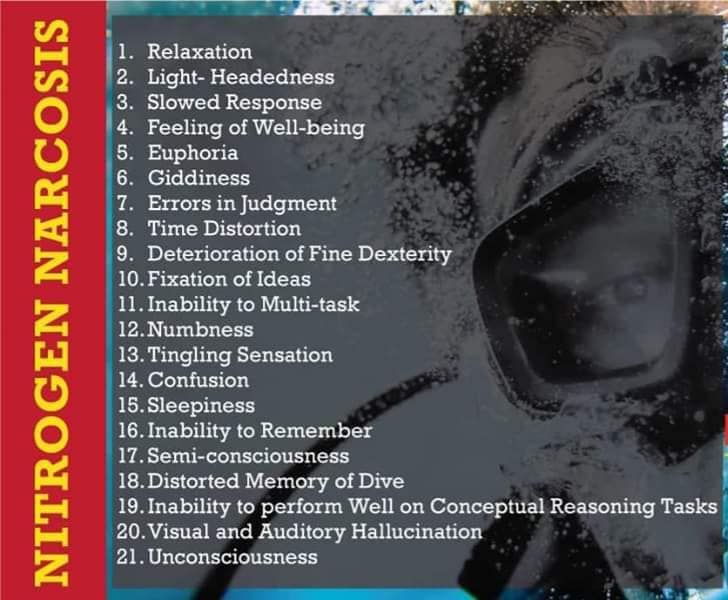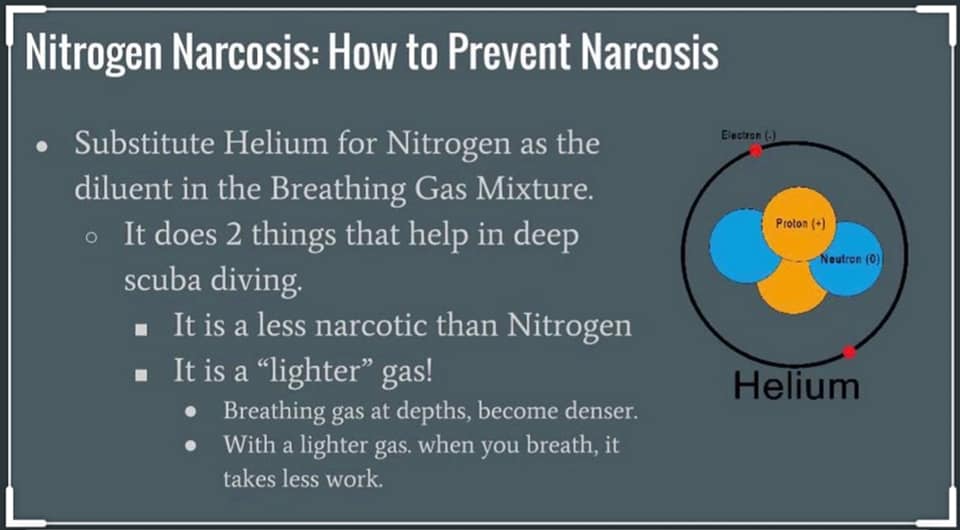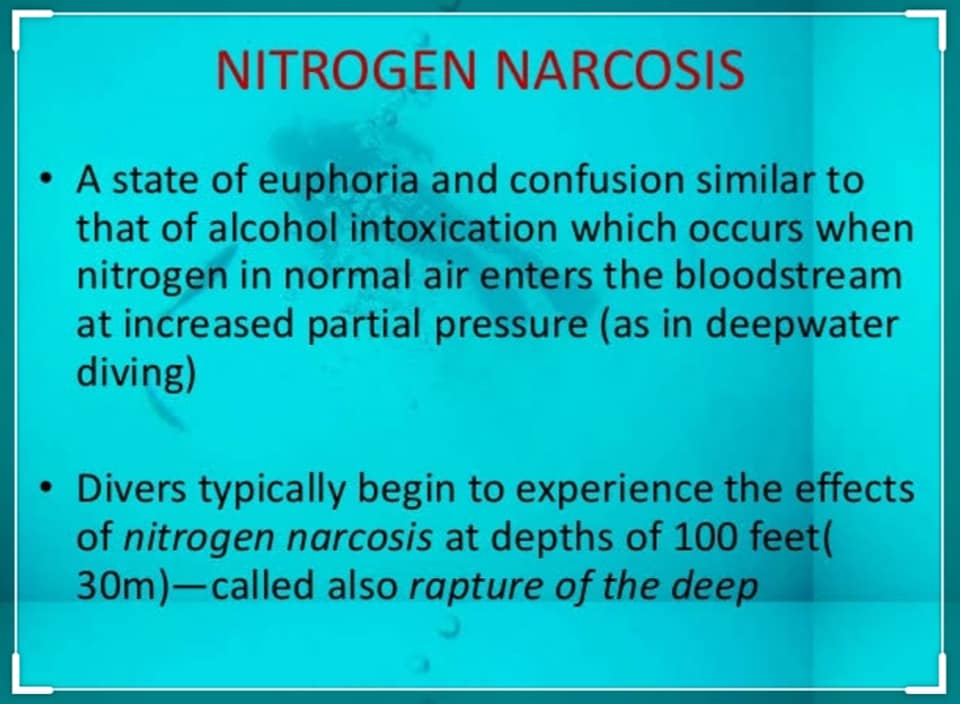[ad_1]
What’s Nitrogen Narcosis? 🤔
I will talk about nitrogen narcosis in diving👇
Narcosis while diving (also known as nitrogen narcosis, inert gas narcosis, raptures of the deep, Martini effect) is a reversible alteration in consciousness that occurs while diving at depth. It is caused by the anesthetic effect of certain gases at high pressure. The Greek word ναρκωσις (narcosis) is derived from narke, “temporary decline or loss of senses and movement, numbness”, a term used by Homer and Hippocrates.[1] Narcosis produces a state similar to drunkenness (alcohol intoxication), or nitrous oxide inhalation. It can occur during shallow dives, but does not usually become noticeable at depths less than 30 meters (100 ft).
Except for helium and probably neon, all gases that can be breathed have a narcotic effect, although widely varying in degree.[2][3] The effect is consistently greater for gases with a higher lipid solubility, and there is good evidence that the two properties are mechanistically related.[2] As depth increases, the mental impairment may become hazardous. Divers can learn to cope with some of the effects of narcosis, but it is impossible to develop a tolerance. Narcosis affects all divers, although susceptibility varies widely among individuals and from dive to dive👌
Narcosis may be completely reversed in a few minutes by ascending to a shallower depth, with no long-term effects. Thus narcosis while diving in open water rarely develops into a serious problem as long as the divers are aware of its symptoms, and are able to ascend to manage it. Diving much beyond 40 m (130 ft) is generally considered outside the scope of recreational diving. In order to dive at greater depths, as narcosis and oxygen toxicity become critical risk factors, specialist training is required in the use of various helium-containing gas mixtures such as trimix or heliox. These mixtures prevent narcosis by replacing some or all of the breathing gas with non-narcotic helium.
Symptoms of Nitrogen Narcosis.👀👇
1. Relaxation
2. Light – headedness
3. Slowed Response
4. Feeling of Well-being
5. Euphoria
6. Giddiness
7. Errors in Judgement
8. Time Distortion
9. Deterioration of Fine Dexterity
10. Fixations of Idea
11. Inability for Multi-task
12. Numbness
13. Tingling Sensation
14. Confusion
15. Sleepiness
16. Inability to Remember
17. Semi-consciousness
18. Distorted Memory of Diving
19. Inability to Perform Well on Conceptual Reasoning Tasks
20. Visual and Auditory Hallucinations
21. Unconsciousness
Thank you for reading and we hope that you know more about gases and their relationship to diving😊
I wish you a safe and happy dive🙂
NOTE :- If you think this article is important and has valuable information, please Like post and share it to benefit others as well
Thank you very much 🤝🌹
#Diving_College⚓👌
#Mostafa_Alshrkawy



[ad_2]
Source